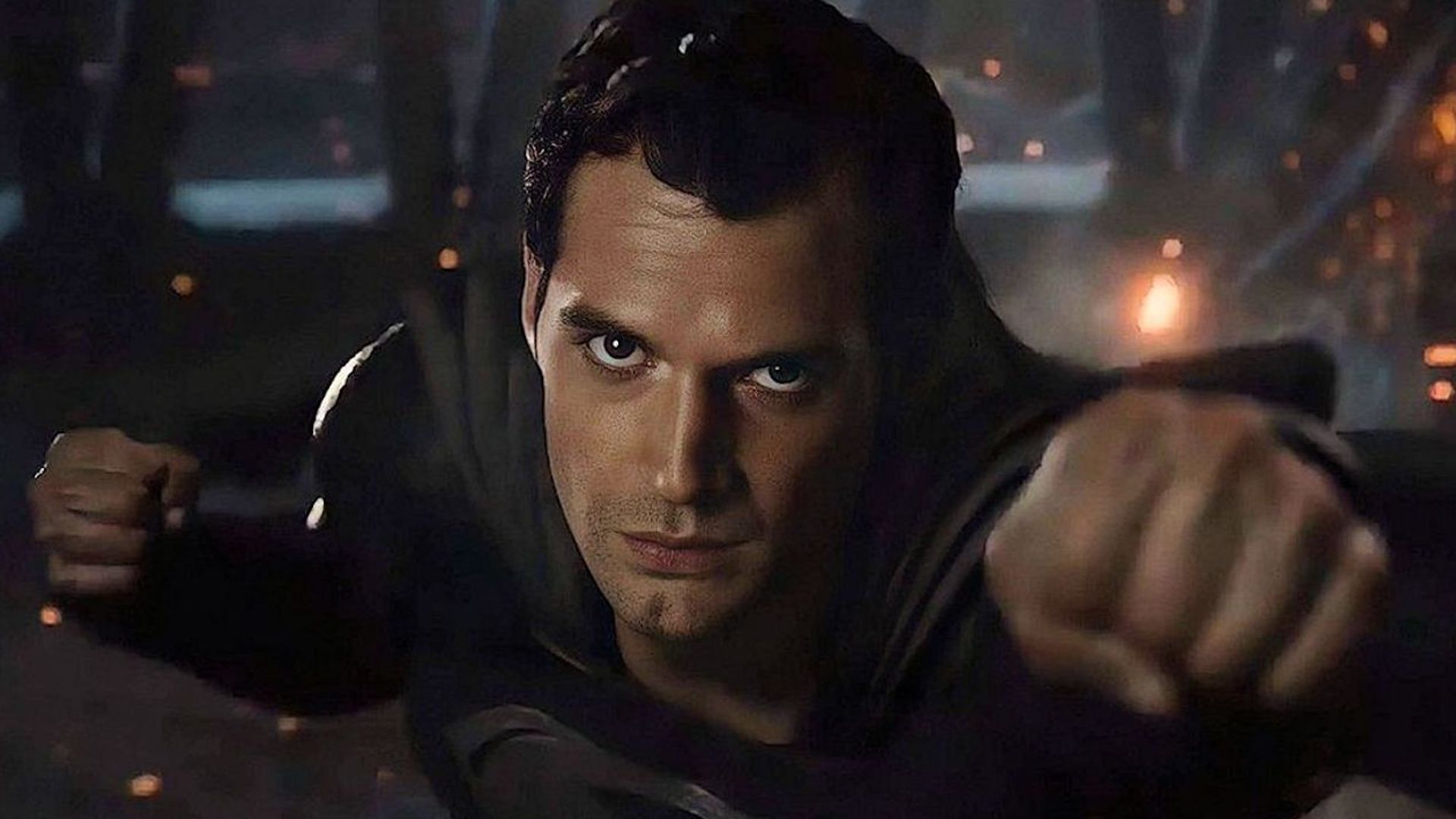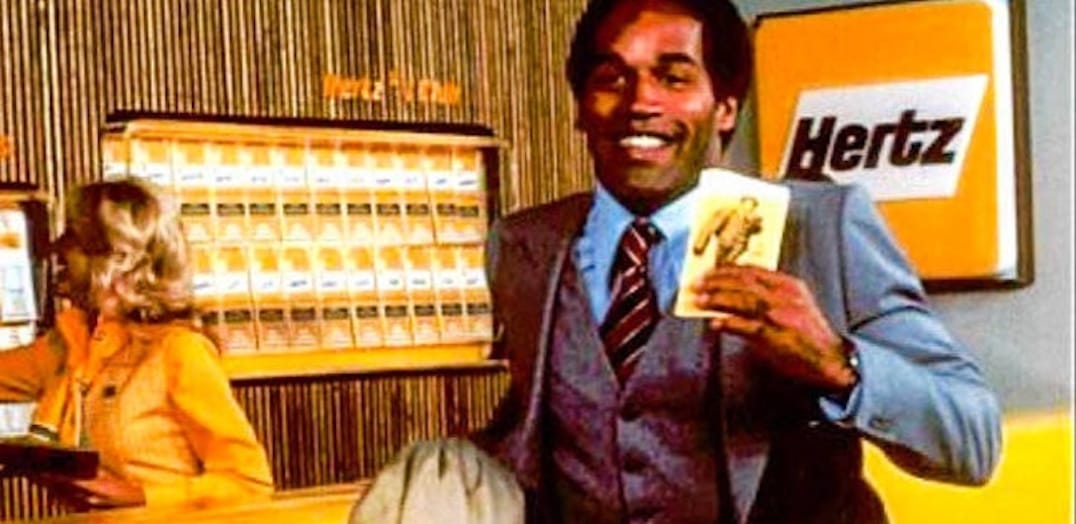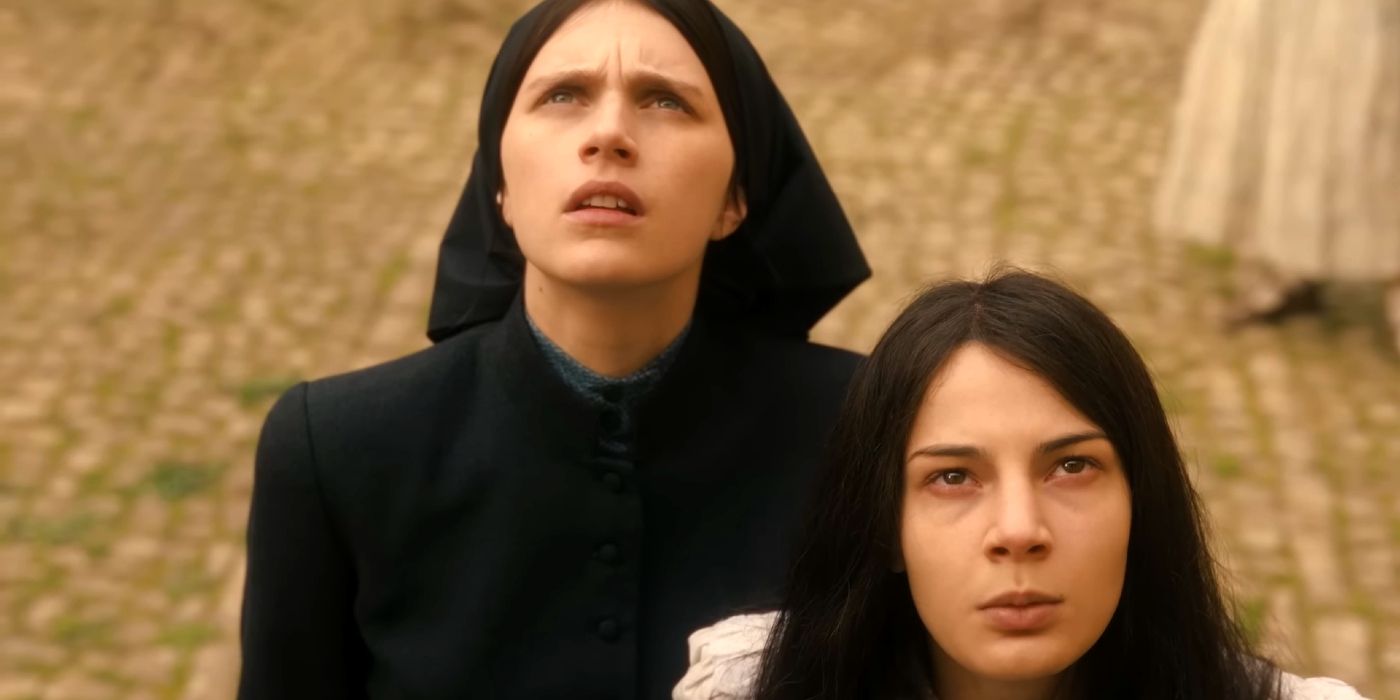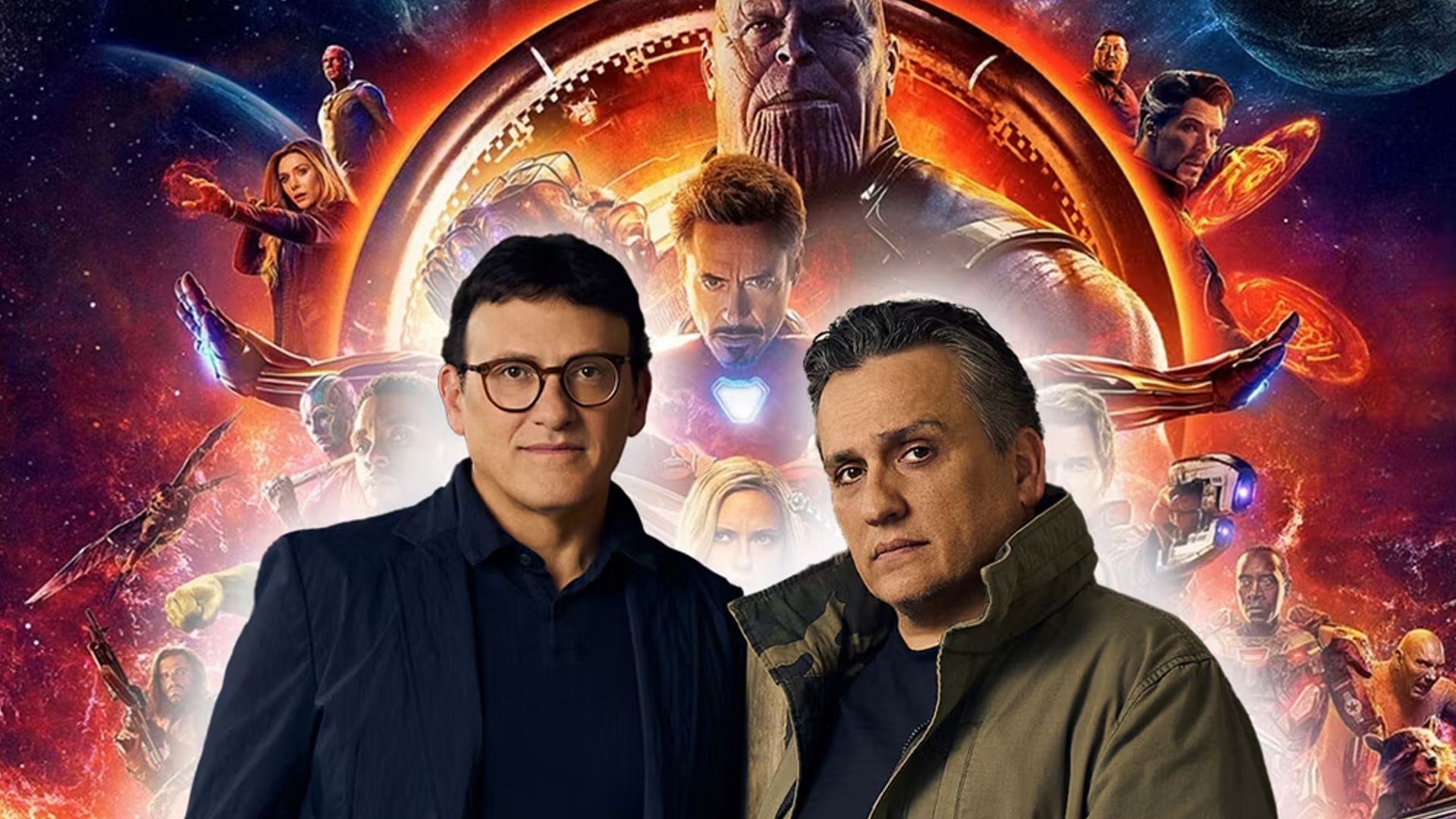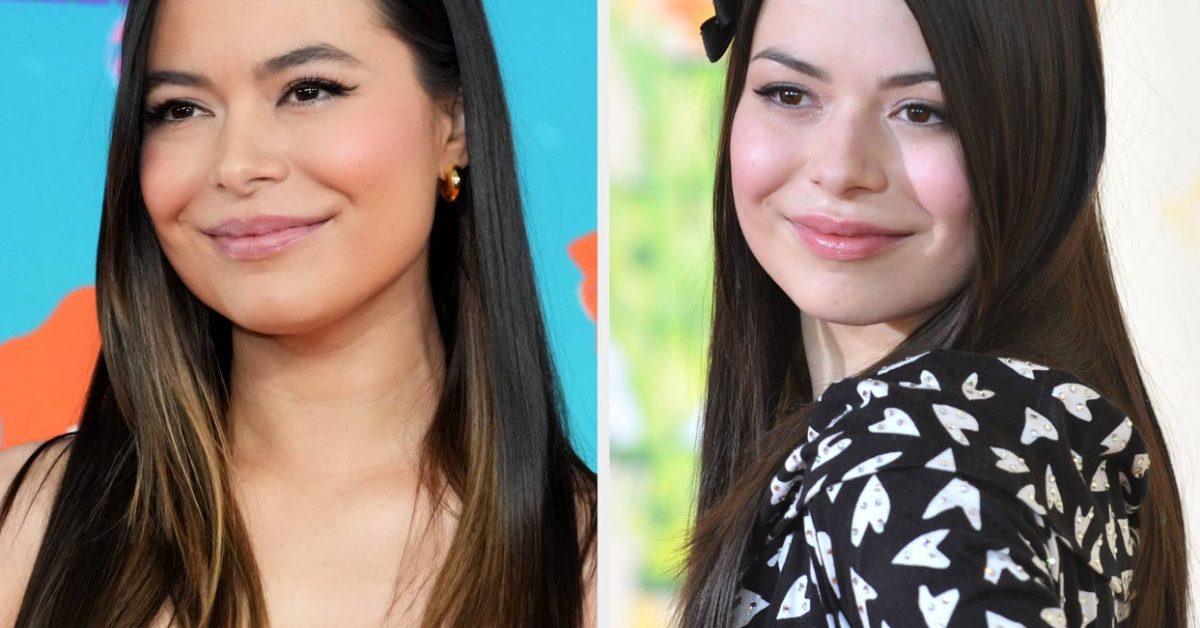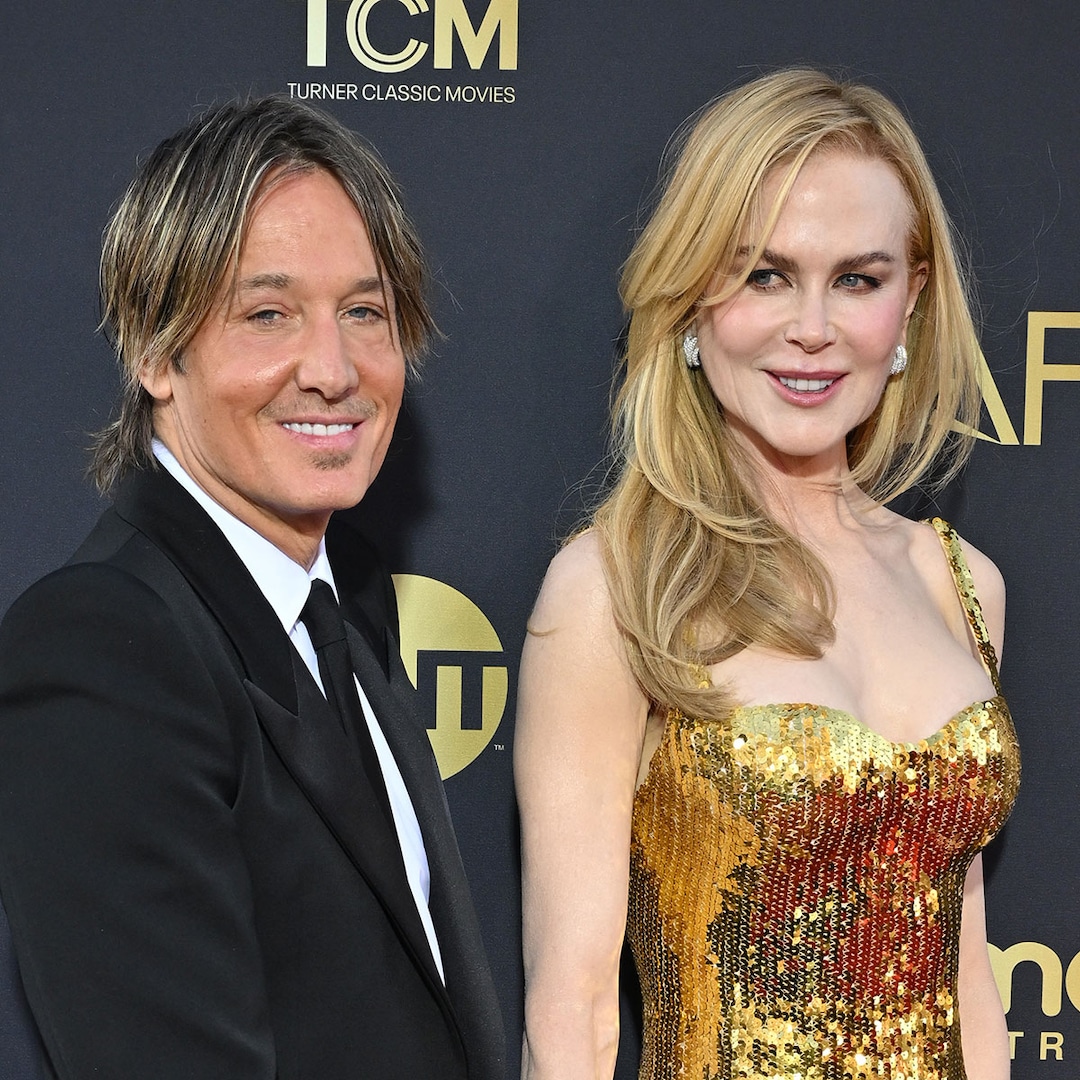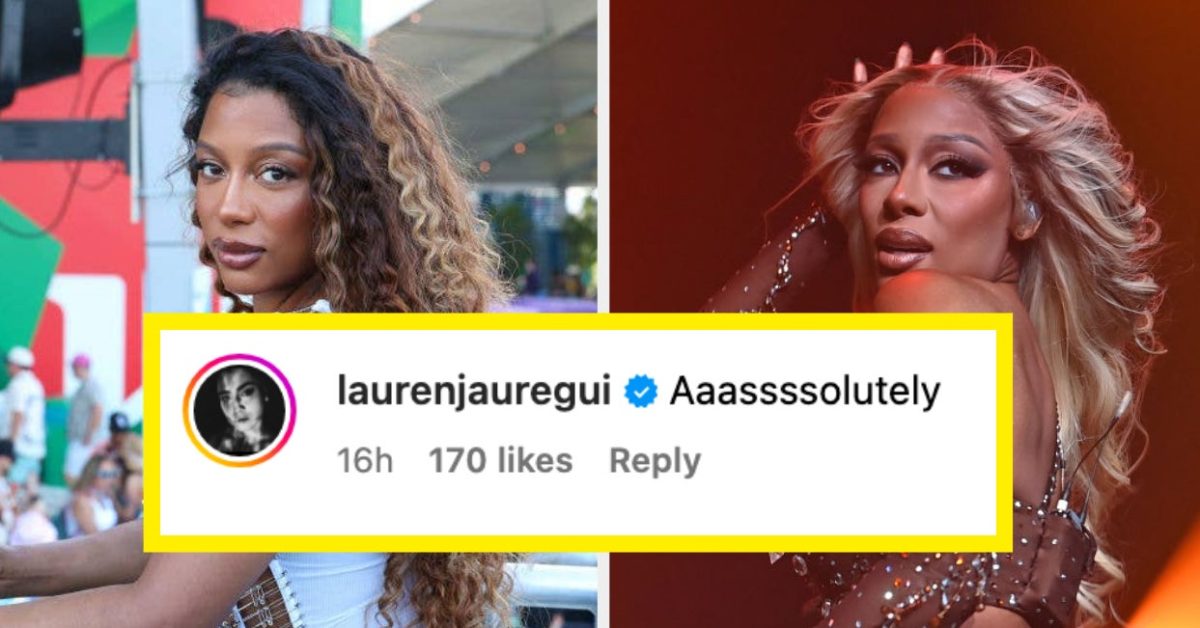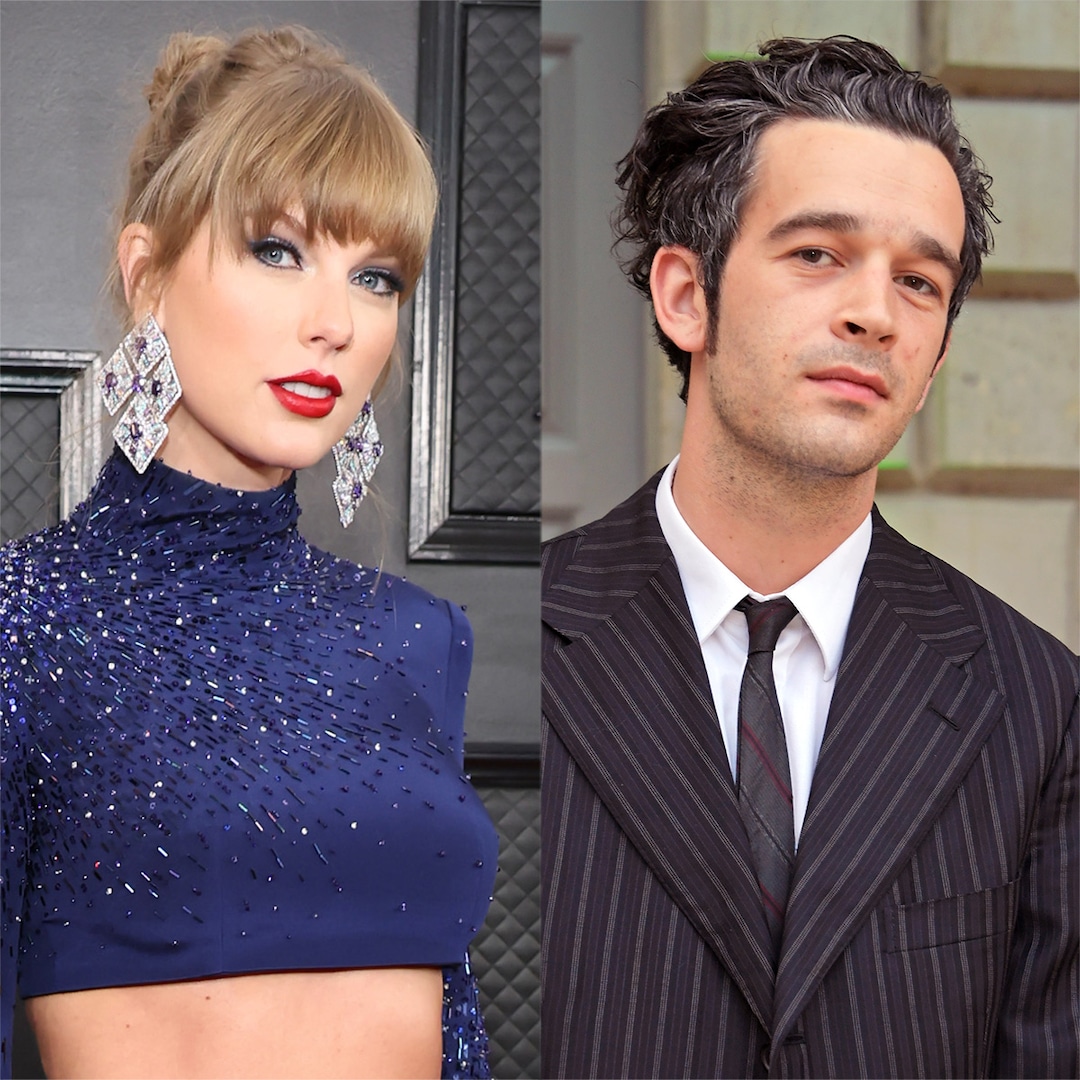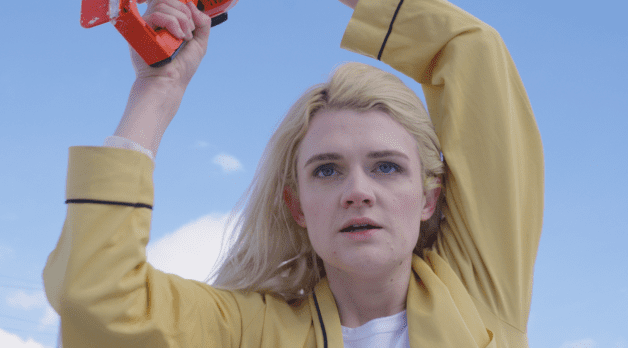
Let Me Be Your Shelley Duvall: Stewart Thorndike on Bad Things
Jun 14, 2023
Gayle Rankin in Bad Things
The haunted halls of a defunct Catskills hotel wreak psychological violence on a group of young, queer city slickers in Bad Things, the long-awaited sophomore feature from writer-director Stewart Thorndike. Arriving nearly a decade after Lyle, Thorndike’s sapphic take on Rosemary’s Baby starring Gabby Hoffmann, Bad Things similarly tackles plot points and thematic fixations of another scary movie staple—Stanley Kubrick’s The Shining—through a thoroughly queer and feminist perspective.
Ruthie (Gayle Rankin) is debating whether or not to sell the now-derelict hotel her mother used to run years prior. With a decisive real estate meeting only days away, Ruthie assembles a rag-tag team to keep her company in the snow-shrouded hotel while she waits for her (predictably unreliable) mother to arrive so they can jointly hash out the hotel’s future. She brings her girlfriend Cal (Hari Nef, clad in a vintage Hole pullover) and buddy Maddie (played by Rad Pereira, who not-so-subtly pines over Cal). Crashing their intimate winter getaway is Fran (Annabelle Dexter-Jones), Ruthie’s ex who’s clearly not over their past tryst (though Ruthie might not be, either). Yet their chilly visit promises more than just tentative business deals and star-crossed romantic tension. As they become essentially entrapped indoors by the elements, increasingly strange phenomena begins to unfold: apparitions of lithe identical women jogging in place, body doubles wielding dangerous weapons, a dreamy realtor clearly not of this spiritual realm (marvelously embodied by Molly Ringwald). As these psychological trips mount, so does a very real and bloody body count.
I spoke to Thorndike ahead of her film’s Tribeca world premiere. It screens once again during the festival on Saturday, June 17 before hitting Shudder later this summer on August 25.
Filmmaker: I believe this film was originally titled The Stay, and you’ve been talking about it being your next film for quite some time now. Considering it’s been nearly a decade since Lyle, your feature debut, I’m curious what the timeline was in terms of writing, production and post?
Thorndike: Well, longer than I wanted. Such it is with queer, feminist, indie filmmaking. It was a long road, just fighting to make it exactly what I wanted—the right people, the right location. Then COVID [happened], so we had some delays along the way. We changed the name; The Stay was always kind of a placeholder. It felt generic. So, Bad Things—[the film’s setting] is a place where women do bad things, and we liked the prosaic silliness of it, which made it creepy or perverted or something.
Filmmaker: I also noticed that the phrase “bad things” is dropped several times within the film. Was that already embedded in the script before you realized it would be an apt title, or is that something you went back and snuck in there after the name change?
Thorndike: No, it was always there. I really wanted this place, that was just for women to do bad things or to inhabit their rage, that was separate from the male experience. I was very interested in the full capacity that a woman can go to inhabit her dark side, her power. Understanding that you need to step outside of society to let it play out. It was part of the germ in my gut of wanting to make the movie. I don’t know what that means…
Filmmaker: I like that. Your creative gut flora.
Thorndike: That bacteria [laughs].
Filmmaker: In a piece you co-wrote for Filmmaker back in 2014 upon the release of Lyle, you mentioned that your first film was originally set to be a “a mother-daughter real-estate thriller,” and there are certainly shades of that in Bad Things. Did you always intend to resurrect that concept, or did you wrestle with inserting that plot point here?
Thorndike: It’s just wild that you are bringing that up. I think back then when I wrote that, it was really me emerging into like, “Oh, this is who I am in the film world.” You make your films out of instinct. I guess I’m a woman who makes horror films, and that’s unusual. I’ve taken that into my bloodstream in a different way.
Certain characters haunt me and come through my work. There’s something about a real estate agent that I’m always obsessed with. They’re in and out of people’s homes and playing this strange role. I find it creepy and performative. You know, my mom was a nurse. My aunt was a real estate agent. My mom would drag me to open houses. I don’t know, there’s something that I’m forever obsessed with about that job, and the mother-daughter thing [laughs].
Filmmaker: The throughline of both of those careers that you mentioned also being—at least in the public eye—associated with women a lot more than men is also interesting.
Thorndike: That’s such an interesting point. I’m always like, “Is she a nurse or is she a real estate agent?” I can’t get past that. And it’s true, I’ve never thought about that and I really like that. There are certain jobs that are left for the women to do that are also “polite professions,” in a way. You’re bedside-mannering. You have this persona that you bring to the workforce.
Filmmaker: Lyle has been dubbed “the lesbian Rosemary’s Baby,” and you can make a similar, if slightly reductive, comparison here and say that Bad Things is a “queer The Shining.” Do you feel the comparison is appropriate?
Thorndike: I’ve decided to embrace it. It’s not something I seek out to do, but it just comes out. I think there’s something compelling me to reframe these stories that I love and make them get redefined, reshaped, retold. Taking the camera, tools and stories away. I don’t know why I want to do that, but I can’t deny that I do it. It’s like a sampling or something, a compulsion.
Filmmaker: While making this film, did you revisit The Shining a lot? In terms of the writing process or having cast members watch the film and discuss it?
Thorndike: No, I had them watch Alien.
Filmmaker: Oh, I think that’s very fitting!
Thorndike: You do?
Filmmaker: Yeah, absolutely. A capsule setting, an otherworldly invader that they’re trying to convince each other they aren’t infected by—I think it makes a lot of sense.
Thorndike: Also the beautiful way that film makes it so real when they’re hanging out. Nobody can do that, it’s so hard to pull that off. I find it epic and I love it. The realism, this space story and their performances. I just love it.
With The Shining, as I was writing the script, it came from, as we said before, the gut—all instinct. Then you start to realize there are similarities there that you can’t deny. But I certainly avoided watching the movie because I saw the similarities. I wrote the two models jogging [in the script], and it was only while we were shooting that someone said, “Oh, are you trying to have them be like the [Grady] twins?” I was like, “What? I never thought of that.” So it’s some sort of instinct, compulsion or drive that makes me do it.
Filmmaker: But I think that there’s something very real there. Especially as women who grew up having an affinity for horror films, there are certain touchstones that you “have” to watch, and very few are made by women. Maybe if more were, we’d be more inclined to riff on those works as opposed to these so-called auteurs, especially when they—Polanski and Kubrick, in this case—have unsavory reputations among women as a whole. I think that it is perfect for reframing, particularly when people are trying to be more conscious of those who create what we watch and what their actual viewpoints are.
Thorndike: I think that’s true. I have a lot of devotion to those films and it’s like, I want to get on them and take over them, or something. I want to occupy them [laughs].
Filmmaker: To that point, however, you’ve actually worked with Kubrick in the past as an actor in Eyes Wide Shut. I’m curious if you reflected on that at all while somewhat riffing on what’s arguably one of his most popular works?
Thorndike: I guess that experience was so surreal that it feels separate from me. You know, I like to pretend I am Kubrick more than I think about acting for him. I wanted to be him when I was on set, too. I felt a little uncomfortable in that role, but loved being there. On this film, Hari would always say, “Let me be your Shelley,” which became kind of a catchphrase. She’s dying to inhabit all the emotions, and she wears pain so effortlessly. She’s ready for that challenge.
Filmmaker: Speaking of the cast, everyone is really fabulous. You have familiar faces like Gayle Rankin, Hari Nef, Annabelle Dexter-Jones as well as multi-hyphenates Rad Pereira and Jared Abrahamson. Molly Ringwald’s performance is especially chilling, though. How’d you snag her for the role?
Thorndike: The process of casting is you send out a script—and usually it takes a long time for someone to read it—then you have a meeting and you try and vibe with each other. With Molly being this iconic legend, we braced ourselves. We really wanted her. We wanted that magic, that legend. We needed an epic person in there to be that rockstar ghost real estate mother, that spell-maker. We knew that only a few people could do that, and we really wanted Molly. She read the script within a day, we did a Zoom call the next day, and she said she’d do it. That shows so much about her gameness, her courage, her art and her instincts. It’s a real testament to how cool she is.
Filmmaker: Absolutely. And if you are looking at the role from a feminist perspective—which you should—it’s very fitting to have an actor who was considered to be a teenage sex symbol mature into these fully fleshed-out mother roles. I think it’s a very clever inversion, and you can only tap select legacy actors for that. It’s very cool that she was game.
Thorndike: When you say that, you make me realize that she is the sex symbol of the movie. I think of her as being daring, scary and sexy now, not when she was a teen. And this is another way of reframing the story: we have a cast of young, gorgeous super-talents, but the film’s true hottie is the older woman. That’s what happens when a film is made by different voices.
Filmmaker: It’s so true. I also think that especially for queer women, that motherly role is very sensual. It’s something that is sought after. It’s a different framing of that nurturing relationship that a lot of us seek. So it would make total sense for the MILF to steal the show, in that sense.
Thorndike: Hah, I love it. Agreed!
Filmmaker: To that point, something that Lyle and Bad Things have in common is that they both revolve around queer characters, yet their queerness isn’t an aspect of their lives that terrorizes them. There’s an external horror there. This is really refreshing amidst a horror landscape that loves to hand-wring about trauma and identity ad nauseam. This isn’t to say that their identities don’t add important nuance and propulsion to the plot, of course. But I’m curious how you strive for that representation, and if you often find pushback against it?
Thorndike: I do think it has been a fight to make the kind of films that normalize queer relationships and don’t make that the [sole] topic. But I could never do it a different way, because I’m reflecting the world that I’m living in. I don’t think twice about it when I’m writing. I’m not thinking, “I’m making a queer story.” There is funny pushback in different ways that you wouldn’t expect. Like, “Oh, do they have to kiss?” Or, “Are you making queer people look good enough?”
Filmmaker: In what sense? Sexiness?
Thorndike: Not physically, but morally and ethically. They’re killers! Those are valid things to consider, but I also feel like they’re flawed humans with drives, goals and issues. Even just saying “normalizing the queer experience” is hard for me, but I haven’t found a better phrase for it. They’re just people.
I’m an older woman, and I started dating women later in life. Maybe because I was older, or maybe because of my family—I’ve just always been outside of the box a little bit—it wasn’t an issue for me. So I don’t always identify with stories about coming out. I like them to exist, but it’s just not what I want to explore.
Filmmaker: I wanted to ask about the set, because you capture some really wonderful visuals, but there’s also a hallucinatory effect to the space. It conjures somewhat incongruous rooms and architecture, and as a viewer you’re trying to wrap your head around the layout. You must have used multiple buildings to create that feeling, right? How did you scout these locations?
Thorndike: It was mainly one hotel, actually. We used another location for the pool, though.
Filmmaker: Wow, really? Either way, the spaces you chose remind me of those older hotels upstate in the Catskills that cater to elderly clientele, or at least they did back in the day. A lot of them have since been shut down, but they’ve always been kind of haunting. I remember we went to one of those hotels on a family vacation a couple years ago, and I kid you not, the scheduled entertainment on the night we arrived was a ventriloquist.
Thorndike: Oh my God!
Filmmaker: So was it easy to find that eeriness built into these locations, or did it take some seeking out on your part?
Thorndike: I know a lot about hotels. I’m always knocking on doors and pulling over to check out all the abandoned hotels. But yeah, I found a couple of hotels in the Catskills early on in my research that I really responded to. But what you just said is exactly right.
The first hotels I found ended up not working out, but I love this one. The [recurring image in the film of] water running on the third floor came from scouting hotels where they would just keep it running during the off season so the white pipes wouldn’t freeze. I loved all those little details. But I really respond to location, and this location was so inspiring and felt really feminine and haunting, so I kind of rewrote scenes for it. My production designer Amy Williams, my DP [Grant Greenberg], my producers and I would just march around to all the rooms, get a feeling for them all and kind of let them talk to us. Then the actors claimed their spaces and their rooms. I think that the hotel was just a dream to find, and then I let it kind of haunt me and the film [laughs].
Filmmaker: Wait, so you all stayed on location?
Thorndike: No, we stayed next door. [The shooting location] was a closed down hotel.
Filmmaker: Yeah, it didn’t appear to be in functioning condition in the film…
Thorndike: Yeah, it’d been closed down for COVID, maybe even before then. I pulled over in the snow and taped a sign up saying, “Call me, I’m looking for a location!” About two months later I got a call from Becky Darling. I went and checked it out and was like, “Oh yeah, this is it.”
Filmmaker: I also love hotels. I think they’re some of the creepiest places that are somehow still considered normal for us to spend extended periods of time in. But I love that feeling, it’s really compelling.
Thorndike: We were just talking about those professions, the whole hospitality industry. I did a lot of research, and It’s such a strange concept. It’s your home away from home, but bland enough that you can be whoever you want in those walls. It’s very interesting. Is it supposed to be family-friendly, or is it the place where you have your seedy affair?
Filmmaker: In the past you’ve said that horror works best on the big screen, but obviously Lyle had a lot of success with its free online self-distribution model. What made Shudder feel like the right place for Bad Things, and will there be a theatrical window built into its release, or will it only screen at festivals?
Thorndike: It will just be screening at festivals. In talking with Shudder, they really want to embrace artistic female driven horror films. They’ve got such a range, so I was excited to partner with them on this. But are you asking why I don’t self-distribute this one?
Filmmaker: I wasn’t specifically asking, no. But I am curious about if neither of your features have been poised for a theatrical release, is that still something that you are interested in exploring? Or do you think that there’s an inherently democratizing effect to having a film, especially a woman-directed film, easily accessible on the internet?
Thorndike: I mean, I still like a movie theater. It’s church [laughs]. I love it when Lyle sometimes gets invited to screen places. It was at Fantastic Fest a couple years ago. It still gets played on the big screen, and I always love it when that happens. I’m not too precious about that, though. I worship inside the theater and that’s hard to let go of, because I like the group activity and the communing of that experience. But obviously just getting it in front of people is important. I also enjoy watching movies both ways.
Filmmaker: Not to keep quoting you on things you’ve said in the past, but upon Lyle’s release, you mentioned that you didn’t see many women working in horror, and I’m curious if in the past 10 years or so you’ve stumbled upon emerging women or femme horror filmmakers that’ve impressed or inspired you?
Thorndike: Well, I’m just so thrilled that it doesn’t seem like an anomaly anymore. Even when Lyle came out, it was sort of in bad taste or low-brow to have made a horror film, but people really understand now what that genre can explore, do and provide, for the most part. That delights me. I love Alice Lowe. Have you seen Prevenge?
Filmmaker: Yes! I love her, too.
Thorndike: I love Raw. What else do I love? Relic. I thought it was really good and kind of overlooked.
Filmmaker: That leads me into my next question, because Relic deals with themes of aging. I hear that your next film, Frigid, is going to be a slasher that centers on elderly women. Is that right?
Thorndike: Yes, women over 50.
Filmmaker: Oh, so not necessarily “elderly,” then.
Thorndike: Well, they’re older. The youngest will probably be 60. I’m not reframing a specific film this time, but a genre of films—the slasher—and saying, “Well, what is it like when I do it?” Or, “What’s it like when you put a woman’s perspective and gaze into that mix?” It really highlights what we think of women’s bodies, how startling it is when you see older women enjoying their power and their own bodies. Comparing how they’re lounging by the pool and being preyed upon with younger bodies that we want to watch get slaughtered. Just really flipping everything on its head. But the film is really about how women are conditioned to doubt their experiences. It’s about a woman who’s inspired by Anita Hill or Dr. Blasey Ford, but who wasn’t as brave as them. What does it feel like if you don’t find that courage?
Filmmaker: I have a huge fascination with the depiction of older women in horror films. Their bodies are used as a tactic for jump scares. It fosters this feeling of revulsion that’s uniquely reserved for older women’s bodies.
Thorndike: Like in The Shining!
Publisher: Source link
Miranda Cosgrove Recalls Awkward iCarly Fan Encounter
Miranda Cosgrove Recalls Awkward iCarly Fan Encounter In the 2000s, Miranda Cosgrove was one of Hollywood's best-known child stars. And now, at 30 years old, her iconic shows are being discovered by a whole new generation of viewers. While appearing…
Apr 30, 2024
Nicole Kidman Details Rare Night Out With Keith Urban and Their Kids
This isn't a big or little lie: Nicole Kidman has mastered the art of balance. In fact, right after being honored at the 2024 American Film Institute Life (AFI) Achievement Award Gala April 27—where she walked the red carpet with husband Keith Urban and…
Apr 30, 2024
Victoria Monét Shared A Picture Of The Extra Weight She's Gained, Particularly In Her Butt, Thanks To PCOS, And She's Learning To Love It
"Now there are two moons on the stage."View Entire Post › Disclaimer: This story is auto-aggregated by a computer program and has not been created or edited by filmibee.Publisher: Source link
Apr 29, 2024
Untangling Taylor Swift’s and Matty Healy’s Songs About Each Other
"Loml": In this moving track, Taylor first sings about being called the love of someone's life "about a million times." However, the dynamic soon changed. "If you know it in one glimpse, it's legendary," she notes. "What we thought was…
Apr 29, 2024
